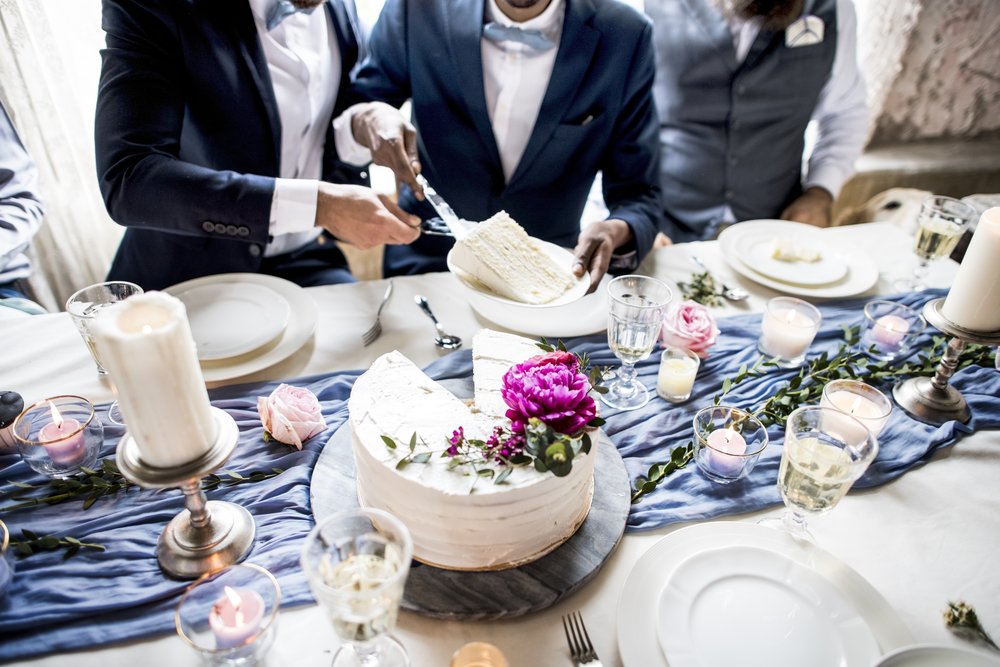
[dc]T[/dc]he Supreme Court of the United States is expected in June to deliver its ruling on the issue of whether a Colorado baker was within his rights to refuse to bake a cake for a same-sex wedding ceremony. The Court is expected to balance small business owner Jack Phillips’ free exercise of religion and freedom of speech rights against the couple’s rights against discrimination.
Last week, a judge in Bakersfield, California made a preliminary ruling that baker Cathy Miller of Tastries Bakery, can continue to refuse to bake same-sex wedding cakes until the case goes to trial in June. The judge denied the State of California’s request for an injunction that would order Miller to continue baking cakes for same-sex weddings.
Although Kern County Superior Court Judge David Lampe ruled in favor of the baker, he stated that business owners cannot continue to refuse service to protected groups, but rather that the baker could refuse to make a special cake for an event. Judge Lampe ruled that the act of making such a cake constituted protected artistic expression.
Lampe ruled, “The State cannot succeed on the facts presented as a matter of law. The right to freedom of speech under the First Amendment outweighs the State’s interest in ensuring a freely accessible marketplace.”
Lampe distinguished between making a special item for a same-sex couple and generally discriminating against them. “A retail tire shop may not refuse to sell a tire because the owner does not want to sell tires to same-sex couples,” he wrote. “No baker may place their wares in a public display case, open their shop, and then refuse to sell because of race, religion, gender, or gender identification.”
“The difference here is that the cake in question is not yet baked. The State is not petitioning the court to order defendants to sell cake. The State asks this court to compel Miller to use her talents to design and create cake she has not yet conceived with the knowledge that her work will be displayed in celebration of marital union her religion forbids,” Lampe continued. “For this court to force such compliance would do violence to the essentials of Free Speech guaranteed under the First Amendment.”
UCLA Law Professor Eugene Volokh wrote in his blog, “The Volokh Conspiracy” that creating a wedding cake “with no text or symbolic design on them” is not constitutionally protected speech but that “creating photographs, videos, and text would be constitutionally protected speech.”
Regardless of where the line between accommodation and free speech and exercise is drawn, the ruling takes a troubling turn when it blames the dignitary harm that the same-sex couple may incur on the couple for venturing into the marketplace to seek a cake. Lampe wrote, “When one feels injured, insulted, or angered by the words or expressive conduct of others, the harm is many times self—inflicted.”
Although the similarity is likely coincidental, the language is reminiscent of the rationale in Plessy v. Ferguson, 163 U.S. 537 (1896) in which the U.S. Supreme Court upheld the constitutionality of racial segregation laws. In Plessy, Justice Henry Brown wrote, “We consider the underlying fallacy of the plaintiff’s argument to consist in the assumption that the enforced separation of the two races stamps the colored race with a badge of inferiority. If this be so, it is not by reason of anything found in the act, but solely because the colored race chooses to put that construction upon it.”
While there are free speech and free exercise issues involved when a person is required by the state to act in opposition to his or her sincerely held religious beliefs, it is also important not to downplay the gravity of the effect on those who are denied services, and in this sense, the Bakersfield decision may have entered truly uncomfortable ground, and this unnecessary language underscores the concern that some have that providing the right to denial of services could roll back protections against segregation. Just as the fact that a person holds their religious beliefs sincerely should be accepted, the fact that the aggrieved experience dignitary harm should also be accepted. It is then that the act of balancing these rights can be attempted on equal ground.
By the time the Miller case goes to trial in June, the Supreme Court will likely have rendered its decision in Masterpiece Cakeshop. In the meantime, in this case, Judge Lampe engaged the difficult task of determining where to draw the line between competing rights and his ruling is gaining national attention.

Photo: DepositPhotos.com